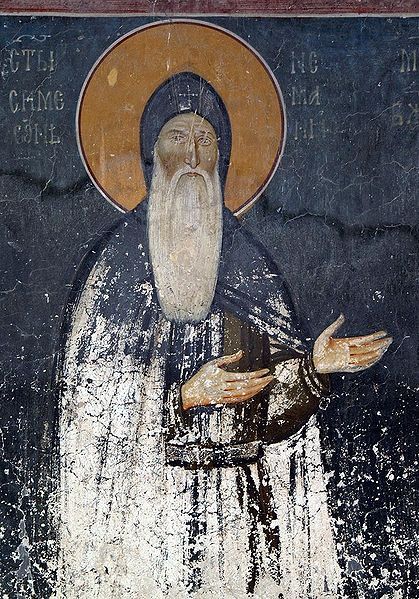
The Veliki Knyaz
An Episode in Russian History

An episode that we associate specifically with Communism --- rather than with Russian traditions --- is the Moscow Trials of the late 1930s. Recall that Stalin and his prosecutor Vyshinsky insisted on forcing confessions out of all the defendents. Why? The conventional explanation is that, inasmuch as the charges were utterly bogus, the prosecution had to get confessions for lack of any other evidence. Maybe so. But another motivation, which does not logically exclude the first, is rooted in Russian history. Maybe Stalin's aim was also to mount a performance of a traditional Russian drama: the ritual in which repentent miscreants throw themselves on the mercy of their all-powerful sovereign, and beg his forgiveness for their sins.
This tradition is well illustrated in the "Chronicle of Novgorod", a medieval history of the once-great trading city. The fall of Novgorod is recounted entirely from the perspective of its conqueror, the Grand Prince ('Veliki Knyaz') of Moscow, Ivan Vasielievich; Ivan, the first Prince of Moscow to call himself "Tsar," is known to History as Ivan III, or Ivan the Great. The section of the Chronicle below, I suggest, is what Stalin wanted to re-enact in the Moscow trials of the 1930s.
From the Chronicle of NovgorodWhen the men of Novgorod were brought before the Veliki Knyaz [Grand Prince], he, the pious one, with a godly wisdom accused the crafty men of their cunning and dishonourable proceedings, of departing from the light of true worship and giving themselves up to Latinism, of surrendering themselves to the Latin king while being the patrimony of him the Veliki Knyaz; and of surrendering to the Latin king according to the draft of a treaty with him all the towns districts, lands and waters which belonged to him the Veliki Knyaz of Moscow, together with the taxes.Having found them guilty of all this, and being thus stirred against the men of Novgorod he ordered them to execution by the sword, the chief Posadniks [mayors] among whom was Dmitri the eldest son of the charming Marfa, the town Posadnik: and she was also to lose her life by decapitation, together with these: Vasili Seleznev Guba, Kiprian Arzubiev, and Ieremia were also beheaded for their conspiracy and crime in seeking to take to Latinism. Many other Posadniks, Tysyatsky Boyars and men of substance of Novgorod were sent away to various towns or thrown into prisons, while others were retained in the fortress under charge to bide their time.
When God's aid came down from on high, with the leader of the heavenly host, the great Archangel Mikhail, in that hour Great Novgorod trembled before the wrath of God, and the Posadniks, the Tysyatskis, the men of substance, the Boyars, the merchants, and all the land of Novgorod turned their hearts towards good.
So did those men of Novgorod come unanimously to one decision --- taking with them the priest-hermit Feofil, nominated Vladyka of Novgorod the Great and of Pskov, the Archimandrites, and Igumens, the worthy fathers and hermits, the priests from all seven cathedral churches, and a great number of the best men of the town, they went to the pious sovereign and Veliki Knyaz of all Russia Ioan Vasilievich, and all of them prostrating themselves before him, they repented them with tears and in great sorrow of their crimes, praying:
Merciful lord and Veliki Knyaz of all Russia Ioan Vasilievich, for the Lord's sake pardon us guilty men of Novgorod the Great, your patrimony; grant us, Lord, your favour, withdraw your anger, hold back your sword and extinguish your fires, silence your thunders, spare the land from ruin, be merciful and let your unresponsible people see the light.
§ § §
Notice that the Novgorod defendents in the 1470s were accused of selling out to Latinism, i.e., to the West. What happened is that the Republic of Novgorod, menaced by the Duchy of Muscovy, had sounded out Poland-Lithuania for an alliance. Novgorod may have contemplated signing a treaty with Casimir, the King of Poland and Grand Duke of Lithuania. When mere rumours of such negotiations got around, Ivan III, the Veliki Knyaz of Muscovy, sent in his army. After defeating the Novgorod forces at the Battle of Shelon River, he accepted Novgorod's subjection, but allowed it to retain nominal although closely supervised independence for a few years; then Ivan took Novgorod over entirely in 1478. Does this remind anybody of more recent events in the region several hundred miles due south of Novgorod?
--- Jon Gallant
Material drawn from the
Russian Historical Collection
at the University of Washington